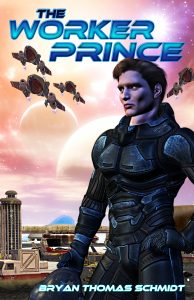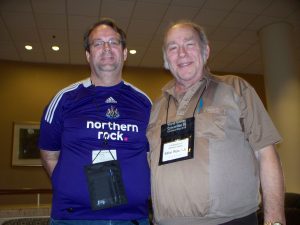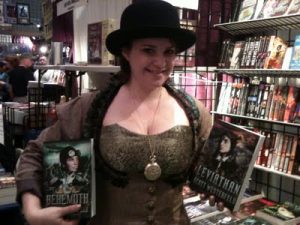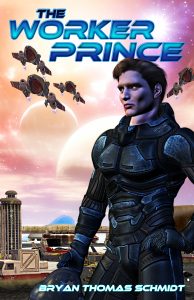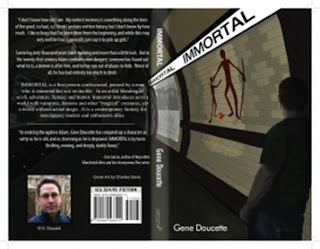 Okay so you have a book, congratulations. And one of the best depositories locally to get it attention is a place where book lovers congregate: the local library, right? So how do you make that happen? Just walk in the door, ARC under you arm and hand it to them? Are there better ways? What would a Librarian suggest?
Okay so you have a book, congratulations. And one of the best depositories locally to get it attention is a place where book lovers congregate: the local library, right? So how do you make that happen? Just walk in the door, ARC under you arm and hand it to them? Are there better ways? What would a Librarian suggest?
I posed just that scenario to John Klima, a librarian and the editor of Electricvelocipede, and, using my book as an example, here’s what he said:
“Libraries/librarians got a LOT of requests from local authors wanting their material added to the library’s collection. Unfortunately, most of their work is not good.
If your work is not reviewed (and the review doesn’t have to come from Publishers Weekly or Library Journal [although you could try sending your work to Library Journal to see if they would review it]) it’s unlikely that librarians will find it, and if they can’t find it, it’s unlikely that they’ll purchase it. If they do find it, it’s still unlikely that they’ll buy it since they have nothing to verify its quality. Having said that, most books that get published don’t get reviewed (think of all the computer books at a bookstore, almost none of those are reviewed), so librarians need to be very creative about how they do collection development and decide what books to add to their catalog. It’s extraordinarily difficult for small press and self-published books to make their way into the library.
Now, I’m not saying this next part to upset you or make you mad (nor do I think it’s necessarily right or the way things should be), but walking into a library with a copy of your book in hand almost guarantees that your book will not end up in the library’s collection. You’re asking the staff to evaluate and decide on your book on the spot, even if you specifically tell them that’s not what you’re doing. Contacting via email isn’t really any better. A nicely written publicity email (or even a mailed publicity letter) with links to reviews and blurbs would likely get looked at. If you wanted to send an e-version of the book, I’d say to do it in an opt-in fashion, that is, only send it if the librarian asks for it. Don’t presume and send it. It will likely get deleted as a potential virus.
When I get an unsolicited book at work (which happens at least every month if not more often, and I don’t go more than a few days between getting emails about books that are coming out [and let’s not even talk about Facebook, G+, Twitter, etc.]) I give it a cursory glance and then dispose of it. It sounds harsh (it is harsh) but the stuff getting sent to me is just awful. Of course, most librarians are not also editors of an award-winning genre magazine. They’ve likely not spent ten years reading slush fiction submissions (and add in my time at Asimov’s and Tor and that’s ever more years). But I know from experience that the library’s internal conversations about local authors mostly revolve around how we don’t want to open that avenue.
I’m personally disappointed when the conversation goes that way. I understand the concerns, but I think it might be nice to have a shelf/range devoted to local authors. Yes, it would contain a lot of bad writing. And most of those writers would want to have programming devoted to their books. We have people who bring in their book and want to schedule a monthly program about their book. That doesn’t make sense even if you were Neil Gaiman or John Scalzi (it may sound like fun, but month after month of your favorite would wear thin eventually). The library would have to develop very clear guidelines as to what’s accepted and what the library would do about local author programming. What I’d do is an annual local author day and have authors sign up for times for little Kaffeeklatsches or something along those lines. I’ve also thought about hosting programming about creating eBooks and then using server space to hold items created locally. But I haven’t given that much more thought than what I just typed.
I haven’t read your book, but I have looked at the reviews and read the blurbs, so I’m working on the assumption that your book is not awful. Far from it. So this email is sent to you as a caution. I don’t want your work to unfairly get lumped in with the normal dreck that a librarian sees on an ongoing basis. You really need to find a way to contact librarians somewhere outside of the library (somewhere official, not stalking at their homes lol). I can’t speak for your area, but we had a book festival here over the summer. In addition to many of the local librarians, there were a lot of small/self-press authors there who could talk to librarians. No different from going to a SFF con. Also, I would assume your state has a library association (we have WLA) and an annual conference that you could attend and meet and talk to librarians. There are national conventions, but I assume you’re looking to reach your local library. Don’t forget, many librarians go to SFF cons, so look for them there.
Unfortunately, these options aren’t necessarily cheap (the WLA conference is $210 a day if you’re not a member of WLA, which I’m not). But it’s part of the cost of being considered a professional. I’m much more willing to give someone a chance when I’ve met them and they’ve shown themselves to be reasonable human beings. I know that Heather McCormack (my editor at Library Journal) often talks about wanting to give more coverage in their reviews to small press and print-on-demand work. There’s a lot of good stuff out there that people just miss because they don’t know it’s there.”
Okay, not very encouraging? Well, not totally discouraging either. Pretty sage advice, if you ask me. I think there’s lots there to ponder. And that Library Journal idea might be worth pursuing. Certainly a lot in there about how librarians think towards local authors, unknown authors and what not to do. And knowing what not to do is half the battle if you ask me. You didn’t but I said it anyway.
For what it’s worth…
Bryan Thomas Schmidt is the author of the space opera novel The Worker Prince, the collection The North Star Serial, and has several short stories forthcoming in anthologies and magazines. He’s also the host ofScience Fiction and Fantasy Writer’s Chat every Wednesday at 9 pm EST on Twitter, where he interviews people like Mike Resnick, AC Crispin, Kevin J. Anderson and Kristine Kathryn Rusch. He can be found online as @BryanThomasS on Twitter or via his website. Excerpts from The Worker Prince can be found on his blog.
Hugo award winning Editor John Klima is the founder and editor of Electric Velocipede, a former print zine now transitioning to electronic format. He’s also edited numerous anthologies, such as Logorrhea and the forthcoming Happily Ever After. A former book editor/slush reader, he has worked for Tor, Dell Magazines, and Prime Books and been a panelist at several cons. Active on Twitter as @EV_Mag, John can be found online at www.electricvelocipede.com.

